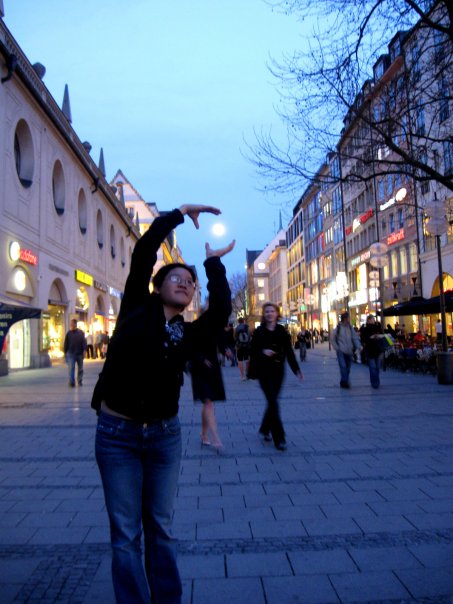 |
In which countries is it, exactly, where saying "I love you" between families members casually is common? I don't know about other countries as much where English is the primary language (UK, Australia, etc.), but I do know that comparatively it's virtually rampant in the "typical" American family. For the longest time as I was younger, it was always a completely foreign idea to me of saying "I love you" to your parents, siblings, relatives, and so forth when you're just hanging up the phone or leaving for work and school. I would hear my friends say it, and this brief but uncomfortable feeling would wash over me. Sure, in concept, you could dramatically state that you never know when it'll be the last time you'll ever see that family member yadda yadda, but that still didn't change how bizarre it felt to me. (Plus, who ever really keeps up with that feeling on a moment-to-moment basis anyway?)
This partially comes from the fact that although I was born and raised in America, the household in which I grew up was entirely Chinese. My siblings were also born in America, but my parents were born and raised in China. Also, I have a grandmother who lives with us who understands some but does not speak any English, so even if we do converse half-and-half Chinese/English with my parents, there was still always the necessity to speak in Chinese (Shanghainese) for much of the time.
At any rate, back to "I love you". It took me years to elbow past the awkward feeling and say it to my mother on the phone the way I had heard it, but thinking about it now, I must admit that it still feels strange. I suspect sometimes that I only say it because we've been living in the culture so long that it's hard not to notice it. And then you eventually try it out. However, as much as I do care for my family, and as important as they are to me, saying, "I love you" to them makes some lobe in my brain twitch funny. I think I have only ever said it to my mother much. It is even more awkward with my father, and if I've ever tried it on my brothers, it was the most short-lasted out of all of the above. As for my Chinese-only grandparents, there is really no equivalent in Chinese. This is not to say that the phrase, "I love you" does not exist in the language. It does. But in no way is it usable in this context.
A friend of mine once put this very well. In America, or at least the English language, this is how we use the word love:
- I love my mother.
- I love my brother.
- I love my spouse.
- I love my dog.
- I love my cheeseburger.
--whereas in tons of other languages around the world, there are very clear distinctions for the term of "love" for each one of these, if not at least a few of them. (Which totally makes sense to me. You equate the affection for your own mother with fast food?)
In Germany, this phrase is also not tossed out like this. Actually, I've probably never even heard it in passing here, ever. Why? Probably because I haven't been in any sort of serious or romantic relationship here. There are endearments of course, as in any language. But you say, "Ich liebe Dich" to anyone but your lover in a private situation, and the other person is likely to give you a very odd look, even if it's a close friend or relative. Simply completely awkward. Germany is by far not the only country where it's like this, as "Te amo", for example, is rare in Spain and such, as far as I know.
Totally awkward.

2 comments:
Same goes for polish.
Marcin
When I was little, I would watch this show called "Rescue 911", where they'd reenact true stories of emergencies and then have the victims come on and talk about it. There was this one episode where an elderly man almost died in his sleep. I remember him and his wife saying that they always say 'I love you' before they go to bed, because you never know how much time you have left.
And I remember making a conscious decision that day to never hang up the phone or leave before telling my family members that I love them, because you never know how much time you have left. Now it might be a thing of habit, but that was most definitely how it started.
..I just thought it was interesting that you brought that up. :)
Post a Comment